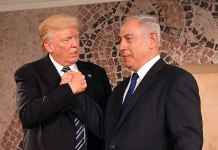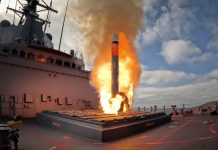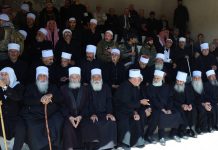Chinese President Xi Jinping’s dissolution on April 19 of China’s much-hyped Strategic Support Force (SSF) to create three parallel divisions, all reporting directly to the Central Military Commission (CMC), of which he is the Chairman, seems to be further strengthening his power and position as the country’s supreme leader.
Why Did Netizens ‘Mock’ Nigeria For Importing JF-17 Thunder Fighter Aircraft From China & Pakistan?
Xi has now created a new branch called the Information Support Force (ISF). The aerospace and cyber units previously under the umbrella of Strategic Support Force, created in 2015, will now be organisationally parallel to the newly created ISF.
Li Wei, the political commissar from the now-defunct Strategic Support Force, will assume that same role with the Information Support Force. Bi Yi is the new commander of the Information Support Force.
The position of the previous commander of the Strategic Support Force, Gen. Ju Qiansheng, whose disappearance had spurred speculation that he was linked to the broader turmoil in China’s military leadership that has unfolded over the past year, is not known.
With the latest reform, the overall Chinese military (PLA) now has a new system of services and arms under the leadership and command of the CMC: “four services,” namely the Army, the Navy, the Air Force, and the Rocket Force (responsible for nuclear weapons), and “four arms” of the Aerospace Force, the Cyberspace Force, the Information Support Force, and the Joint Logistics Support Force.
Reportedly, Xi views the establishment of the information support force as a major decision that the CPC Central Committee and the CMC made in light of the overall need to build a strong military.
“The information support force is a new, strategic branch of the military and a key pillar in coordinating the construction and application of the network information system. It will play a crucial role in advancing the Chinese military’s high-quality development and competitiveness in modern warfare”, according to the Chinese supremo.
Wu Qian, a spokesperson for the Ministry of National Defense, told a press conference on April 19 that “ISF is a brand-new strategic arm of the PLA and a key underpinning of coordinated development and application of the network information system, which plays an important role and bears great responsibility in promoting high-quality development and the ability to fight and win in modern warfare.”
ISF consumed much of Wu’s time, though he also explained the importance of the other two forces. In fact, this reform will elevate the independence of the aerospace and cyber warfare units.
He said that the cyber force was needed for reinforcing national cyber border defense, detecting and countering network intrusions and maintaining information security.
According to him, the aerospace force will improve China’s access to and ability to use outer space. “We are committed to peaceful utilization of space and stand ready to work with all countries with the same commitment to strengthen exchanges, deepen cooperation, and contribute to lasting peace and common security in space,” he said.
A commentary- article published by the PLA Daily on April 20 said that “the establishment of the Information Support Force of the Chinese People’s Liberation Army (PLA) is a major decision made by the Central Committee of the Communist Party of China, the Central Military Commission and President Xi Jinping from the perspective of strengthening overall national defense, which is a strategic measure to construct a new type of structure of services and arms and improve the system of China’s modern military force and holds profound significance for accelerating national defense and military modernization and effectively fulfilling the mission of the PLA in the new era.”
In modern warfare, victory hinges on information. The struggle is between systems, and whoever commands information superiority holds the initiative in war, the commentary explained.
Network information technology has become the “biggest variable” in the development of the times and a crucial factor in enhancing the combat capability of the armed forces. As a newly established strategic branch, the Information Support Force is the key support for the coordinated construction and utilization of the network information system.
The commentary said it plays an important and significant role in promoting the high-quality development of the Chinese military and winning “modern warfare.”
It may be noted that in 2015, Xi’s military reorganization sought to modernize the PLA by reducing its roughly 2.3 million-strong force by 300,000. It reshuffled the seven military regions into five theatre commands and created the rocket branch and the SSF. Xi also moved key functions such as logistics, training, and mobilization directly under the command of the CMC, which he chairs.
It is also noteworthy that under the SSF, the information forces did exist and were in charge of collecting technical intelligence and providing intelligence support to regional military chiefs. “When the SSF was created, they rearranged existing capabilities under a new command structure. We guessed at the time that it might be transitional, and that has now come to pass,” according to Joe McReynolds, China security fellow at the Washington-based Jamestown Foundation.
In fact, until recently, Chinese commentators had highly praised the SSF’s performance. The space force—known as the Space Systems Department—operated several satellite launch centers and training bases across China. It managed communication and intelligence satellites, provided space-based reconnaissance, and used the BeiDou satellite navigation system to help with military operations.
The cyber force – known as the Network Systems Department – was responsible for defending and attacking computer networks, electromagnetic defense and offense, and collecting intelligence by intercepting signals.
Reportedly, the SSF, along with the Eastern Theatre Command’s naval, air, rocket, and joint logistics support forces, conducted unprecedented military drills around the self-ruled island of Taiwan in August 2022 after Nancy Pelosi, then the speaker of the US House of Representatives visited Taipei.
These drills included a simulated “joint blockade” of the island. The Chinese media then reported how the SSF enhanced the “integrated and joint operational” capabilities of the PLA.
The Chinese media have also reported how the SSF has held successful training exercises using countermeasures in response to simulated drone attacks and network penetration by “enemies.”
The force has also previously conducted exercises involving “electromagnetic confrontation,” in which a ground force unit under the Central Theatre Command participated in a drill. The Chinese media described this as breaking the “barriers” of different military branches.

It is against this background that the sudden dissolution by Xi has surprised many. However, a few possible explanations may be mentioned:
- One, Xi is supposed to have been unhappy over how the Chinese surveillance balloon was shot down by the U.S. last year; for him, it was an intelligence failure and lack of synergies across the different divisions within the SSF. Therefore, he is believed to have decided to restructure the SSF.
- Two, the SFF is said to be heavily reliant on cutting-edge technology and was increasingly becoming vulnerable to U.S. efforts to curb hi-tech exports to China and limit the country’s “military-civilian fusion” strategy based on hi-tech talent recruitment, cooperation with academic institutions, and the country’s private sector.It is said that more than 80 percent of the technologies used in China’s military come from civilian sectors. Viewed thus, separating cyber, space and information operations could be a step towards camouflaging this fusion to some extent. Of course, its success will remain to be seen.
- Three, Xi’s lack of faith in the SSF also needs to be seen in his attempts to curb the rampant and widespread corruption within the Chinese military. As pointed out already, the whereabouts of Lt Gen Ju Gansheng, Commander of the SSF, are still unknown. He was rumored to be involved in military procurement fraud. Xi is systematically side-lining the potential corrupt military leaders and breaking their nexus with military corporations, an exercise that has also resulted in the public disappearance of former defense minister Li Shangfu since 2023.
- Fourth, and perhaps the most important one, is Xi’s attempts at cutting out layers of command and enabling him and his closest leaders in the CMC to speak directly to tactical forces. Here, the commentary in the aforementioned PLA daily is significant to note.
It said that the ISF “must resolutely follow the Party’s command, ensuring absolute loyalty, purity, and reliability. It should provide strong support for combat operations, deeply integrate into the overall joint operational system of the military, and precisely and efficiently provide information support to serve and guarantee military operations in all directions and domains”.
Using words such as loyalty, purity, and party command seems to fit well with Xi’s complete control and his direct interactions with smaller and smaller military outfits, which he has been favoring since his 2015 reforms, which aimed at cutting out layers of command and enabling top leaders to speak directly to tactical forces in wartime if needed.
- Author and veteran journalist Prakash Nanda is Chairman of the Editorial Board – EurAsian Times and has commented on politics, foreign policy, and strategic affairs for nearly three decades. A former National Fellow of the Indian Council for Historical Research and recipient of the Seoul Peace Prize Scholarship, he is also a Distinguished Fellow at the Institute of Peace and Conflict Studies.
- CONTACT: prakash.nanda (at) hotmail.com
- Follow EurAsian Times on Google News




